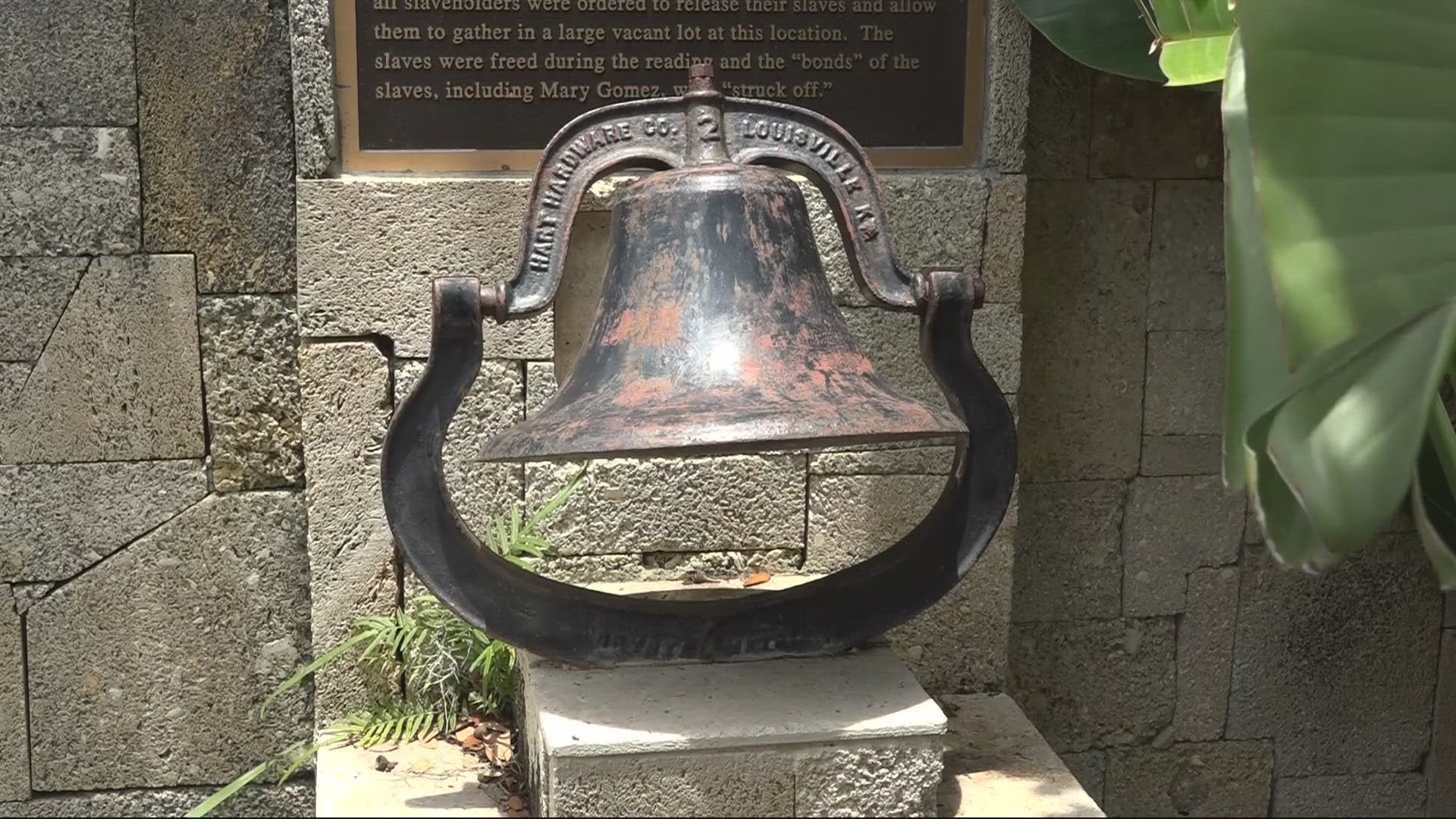ST. AUGUSTINE, Fla. — Juneteenth commemorates when the last of the nation's enslaved people learned that they were free in Texas.
A city on the First Coast was one of the first places in the South that slaves were indeed freed by the announcement.
Tucked inside the property of The Collector Inn in St. Augustine, next to the swimming pool, there is a bell. It’s known as the freedom bell.
When the Emancipation Proclamation was issued in 1863, it was announced that same year in St. Augustine at two locations on the same day. The first reading was in downtown St. Augustine, according to Gayle Phillips. She is the Executive Director of the Lincolnville Museum.
"The official reading took place at the Government house because tht’s where the soldiers were," Phillips said.
She said the second reading in St. Augustine "took place on a particular plantation where people who had been enslaved on that plantation got to hear it."
To draw people to that spot, a bell was rung.
Enslaved people were freed officially in St. Augustine because the Union Army was in the city. Remember, this was in the middle of the Civil War.
"In 1963 it didn’t free slaves in North Carolina, South Carolina, and Tennessee. The Union didn’t control those areas yet, but they did control St. Augustine," Historian Roger Smith said.
However, he said he's spoken with another historian -- James Bullock, and they believed change did not immediately take place in the city.
"After the Emancipation Proclamation was read, instead of there being crying and rejoicing, and hats thrown in the air, it was more of a matter of people looking around at each other and going, 'What do you think? ... I don’t know."
He continued, "St. Augustine may have been held by the Union, but the Confederate Army was all around the area."
And he said the proclamation was hard to understand.
"Because it’s in legalese," Smith noted.
Phillips says freedom was officially immediate for some in St. Augustine.
"For some people," Philips said. "Because they left."
They left to live in or fight for the Union in other states.
And the bell? Phillips doubts the bell that stands in St. Augustine with a plaque was the actual bell rung that day in 1863.
She said it may be a commemorative piece, but she and other historians agree that the bell is in the general location, which was documented to be near a convent.

